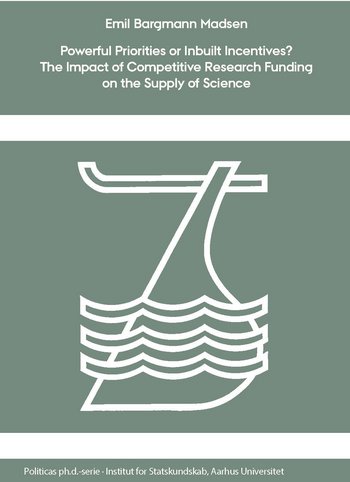Emil Bargmann Madsen
Powerful Priorities or Inbuilt Incentives? The Impact of Competitive Research Funding on the Supply of Science

The advancement of science has become increasingly reliant on individual researchers’ ability to secure funding. Conducting research is now as much a fundraising exercise. In order to continue their work, scientists compete for a common pool of funding through competitive grant competitions. Competitive research funding has emerged as a dominant tool for rewarding talent, identifying the most promising research projects, and steering science towards specific research areas prioritised by governments or private funders alike. But what are the consequences? Competition for funds may appear logical for a research funder looking to effectively allocate scarce resources. However, we know very little about the wider consequences for the scientific system as a whole. This dissertation attempts to remedy this gap by empirically investigating how competitive research funding is distributed across individual researchers and the type of research they do. Through a series of studies using newly collected data on almost 120,000 individual research grants awarded by 22 research funding organisations in Denmark and the United Kingdom, it provides a broad overview on how grant allocations affect the supply of science. Research funding is extremely concentrated in the hands of a select group a researchers but also in a narrow selection of topics, disciplines, and research areas. Moreover, this pattern seems to arise from a mutually reinforcing set of mechanisms. Similar priorities and evaluation criteria across funding organisations lead to a path-dependent distribution of resources, inducing more funding concentration than any individual funder might have envisioned.
![]() Ophavsretten tilhører Politica. Materialet må ikke bruges eller distribueres i kommercielt øjemed.
Ophavsretten tilhører Politica. Materialet må ikke bruges eller distribueres i kommercielt øjemed.